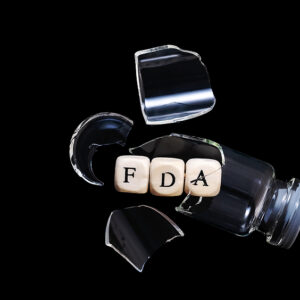When the COVID pandemic started, the United States quickly experienced serious shortages of personal protective equipment, including facemasks and medical gloves. This happened because the United States has become heavily dependent on imports of such supplies. In response, Congress passed legislation to boost domestic production.
However, there’s still another medical crisis facing the nation. The United States remains dependent on countries such as China and India to supply the generic medicines millions of Americans take daily. And too often, these drugs are proving to be substandard and unsafe.
Over the last 30 years, much of America’s drug manufacturing has moved offshore, including the production of generic medications that comprise 90 percent of America’s daily needs. As a result, thousands of drugs are made with ingredients produced only in China.
The situation is dire. The United States no longer manufactures penicillin and has virtually no capacity to produce antibiotics like the ones that treat pediatric ear infections, pneumonia and anthrax exposure. The United States also imports 95 percent of its ibuprofen and 70 percent of its acetaminophen from China.
Compounding these problems is that many generic drug imports continue to enter the United States from overseas factories without proper inspection.
A particular concern is the nation’s largest supplier of these generic drugs, Aurobindo Pharma. The company has repeatedly been cited by the Food and Drug Administration for unsafe manufacturing practices at its factories in India.
However, despite more than a decade of contamination issues, product recalls and safety concerns, Aurobindo continues to supply millions of Americans’ daily medication needs.
Earlier this year, the FDA issued a warning letter to Aurobindo, citing “significant deviations from current good manufacturing practices for active pharmaceutical ingredients.” At the same time, Auromedics Pharma LLC, a subsidiary of Aurobindo, was forced to recall shipments of an injectable antibiotic.
The FDA has experienced trouble with Aurobindo since 2011. And in 2019, federal regulators warned the company of “repeated failures” to address safety concerns, including “contamination at levels above the acceptable limit” and “inadequate cleaning procedures.”
If that’s not enough, Aurobindo recently received three new notices from the FDA for potential violations of the Food Drug and Cosmetic Act.
Despite these repeated safety concerns, however, the FDA just granted Aurobindo’s subsidiary Eugia Pharma Specialties Ltd. approval for an injectable drug used to treat certain types of cancer.
Aurobindo isn’t the only overseas drug manufacturer with a record of safety concerns. Pharmaceutical manufacturers in China and India routinely receive “warning letters” from the FDA regarding production safety violations. These include carcinogenic ingredients in medicines and manufacturing processes that can “result in fatal infections in a broad array of patients.”
Incredibly, though, the FDA has not made in-person inspections in many of these facilities in recent years and has not visited any drug factories in China since 2019.
Poorly inspected drug shipments pose serious risks. In 2007 and 2008, for example, hundreds of Americans died of tainted supplies of Chinese-made heparin. More recently, millions of Americans were sold blood pressure medicine from a Chinese company that contained more than 200 times the acceptable limit per pill of a known carcinogen.
The United States once led the world in pharmaceutical manufacturing. But now, the nation is deeply dependent on foreign drug production. It’s time to rebuild the nation’s domestic drug-making capacity — and do so before another health crisis puts more American lives at risk.
The answer is for the FDA to visit and inspect drugmakers in China and India. There’s an urgent need to test the drugs being supplied to U.S. patients — and to insist on safe manufacturing facilities. Until the FDA can do that, it must hold overseas drug producers accountable — and ban unsafe drug imports.

